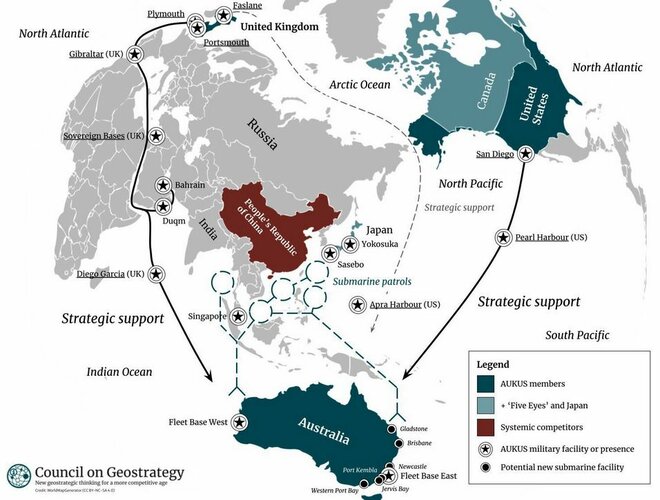To be fair to France are they really that likely to be less reliable than, say, the UK?
France is one of the oldest US allies. It's aggressors that may irrationally question the support of France. And, again, France would be very likely to support Australia.
But there is no denying the 'special relationship' between the US, UK, and Australia. Therein accentuates no ambiguity and a clear signal to aggressors of unified power.
It is arguable that in more recent history France has at least as great experience and track record of supporting their export customers high tech military equipment as the UK does. And the deal for the French subs were part of a wider effort and commitment by France, hence their reaction when Australia exited that deal.
And Australia has the 1941-1942 experience of the UK being unable to come to their aid to the extent required, with the US taking up the mantle as Australia’s key military partner.
Neither was France able to come to their aid.
You will recall that Australians were subjects of the British Empire at the time. Their men and women deployed in 1939 to fight the Nazi regime ravaging Europe. So, actually, the US came to the aid of the UK, protecting Australian families while they were away fighting. That might add to a special relationship.
And there is always the spectre (hopefully never to become corporeal) of the US turning in on itself and abandoning it allies.
Always the spectre? Always widely feared? What evidence do you posit for such a statement?
Current positions being taken on Ukraine (and on Russia) by some in the US body-politic would feed this fear about the future reliability of the US as a military and diplomatic partner.
Election primary rhetoric adds to this nascent belief but $80 billion of support does not refute it? You must be tough to buy Christmas gifts for. That certainly doesn't constitute always widely feared.
AUKUS probably should be seen as part of a concerted efforts to alleviate such concerns (including among countries not party to AUKUS).
But not the $80 billion of support. The US Congress approved much of this aid, and the US is a representative democracy. 'The people' of the United States are supporting Ukraine and Europe.
Note too, the US is providing foreign military financing for allies to help backfill donations of military equipment they’ve made to Ukraine. The US is actually financing Europe to assist Europe.
It is fairly obvious that the US has led admirably during this crisis in Europe. Do you actually believe Sweden and Finland would have decided to join NATO if they widely feared the US would abandon her allies?
None of this is to suggest the likelihood of a “doomsday” scenario or to talk down AUKUS. It’s more that anyone pointing to country A and definitively stating it’s more reliable than country B is at least tempting fate and that ultimately only time will tell.
Yet that is exactly the contention you made with the prima facia argument being primary rhetoric. A "doomsday" scenario where the US will abandon her allies is widely feared
1. even though the US is has provided $80 billion in military and humanitarian aid to Ukraine and
2. even though historically neutral Sweden and Norway have decided to enter NATO of which the primary power projection is from the United States.
France is a noble country and a great democracy. The point amplified the distinctive relationship between the AUKUS members as amplified by the sharing of SSN technology and how that relationship should be viewed by aggressors.











